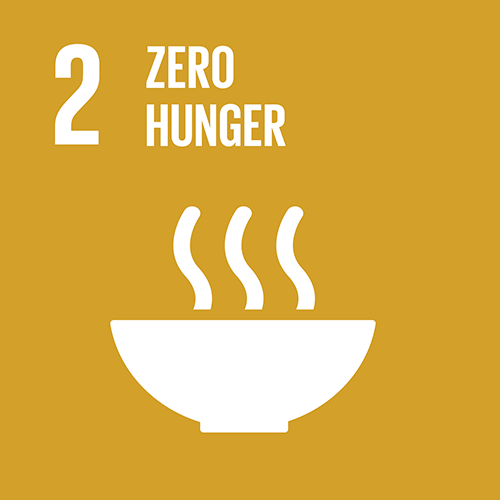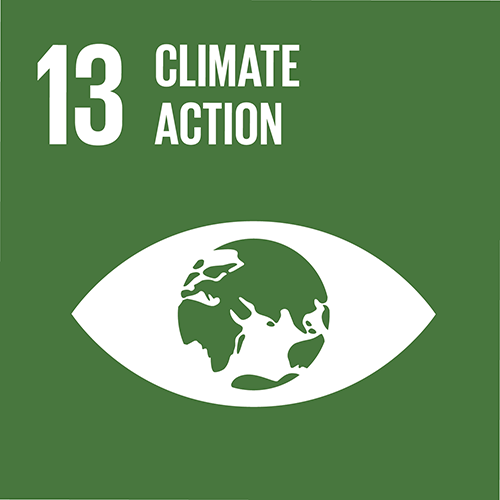Climate-friendly Rice Farming in India

Project type: Land Use and Forestry
Project location: India, Uttarakhand
Project status: In operation, credits available
Annual emission reduction of the whole project: 179,400 t CO2e
Rice is one of India's most important crops and also a staple food. At the same time, rice cultivation emits large quantities of greenhouse gases. The aim of this climate protection project in India is therefore to introduce and promote the alternative wetting and drying process (AWD) for rice cultivation in order to reduce methane emissions.
For more than three billion people, Rice is a staple food and is responsible for eleven per cent of global methane emissions and consumes 40 per cent of the world's irrigation water. One kilogramme of rice requires 2000 litres of water. Due to the climate crisis, the Food and Agriculture Organisation of the United Nations (FAO) expects crop yields to fall by 15 per cent by 2050 and is therefore promoting climate-friendly agriculture. Rice cultivation through traditional continuous flood-irrigation is one of the major sources of Greenhouse gas emissions (GHGs). This technique induces anaerobic microbial respiration in soil leading to production and release of methane (CH4) – one of the potent GHGs causing climate.
However, irrigation techniques like alternate wetting and drying in rice cultivation can reduce CH4 emissions as well as reducing dependence on huge amount of water for flooding. Under AWD method, water is provided to growing rice plants for specific intervals only.
The key to unlocking success in carbon projects lies in the synergy of linking carbon finance with farmers.
How does the AWD method work?
The AWD method is based on installing perforated tubes into the crop soil to measure the height of the water table in the paddy fields. The tube enables the farmers to understand the water level and idea of moisture content of soil. Based on available moisture and requirement of plant at different stage, water is provided to the fields. When soil is saturated enough, the field is drained. So, the cycle of irrigation consists of alternate period of drying and wetting. The length of each cycle is dependent on a number of factors including the rate of water percolation through the soil, the weather, and size of the plants.
Project partner and Carbon funding
The project is being conducted and implemented by Partners in Prosperity (PNP) is a not-for-profit organization working towards an inclusive, self-reliant, and economically and environmentally sustainable India. PNP is implementing AWD method rice cultivation in Udham Singh Nagar district, Uttarakhand, North India by involving and mobilizing the rice growing farmers. Apart from developing technical capacity of the farmers to adopt the AWD method of rice cropping, the project aims at sustainable development and well-being of the farmers as well as the local communities. Other sustainable development objectives of the project are training and capacity building of farmers to adopt the water saving and GHG reducing technique of rice cultivation, plantation of multiple varieties of local tree species for multiple uses by the local communities such as fruit, fodder and seeds, creation of multiple skill development centres for promotion of entrepreneurship among local youths and women, organization of medical camps for the farmers and the local communities in the project area, creation of job opportunities for the local people in various project-related activities.
For over a decade, PnP has dedicated its efforts to perfecting AWD (Alternate Wetting and Drying) techniques. Now, we are expanding the scale to address the concern of water scarcity and curb methane emission.
Monitoring, Reporting, Verification (MRV)
Each year, the project undergoes rigorous monitoring, reporting, and verification (MRV) procedures in accordance with the Gold Standard methodology and certification process, including an audit by an independent third party. The emission reduction shall be estimated based on field and laboratory measurements of methane in rice fields, the best and latest available practices will be adopted to measure methane from rice fields. These rigorous checks ensure the pledged emission reductions actually occur, securing the project's long-term success. More details can be located in the "Documentations" section.
This project contributes to 4 SDGs*
*as at the end of 2023. Find out how myclimate reports these SDGs in our FAQ.
The following SDGs are verified by the Gold Standard:
The yield of rice is expected to increase by 30%.
The project will reduce the dependance on huge amount of water upgrading the irrigation practice.
The project will create permanent jobs in Udham Singh Nagar district of Uttarakhand.
Each hectare avoids 3.0 t CO2e per year.
Situation without project
Higher methane emissions and higher water consumption.Project standard

Project number
7256










